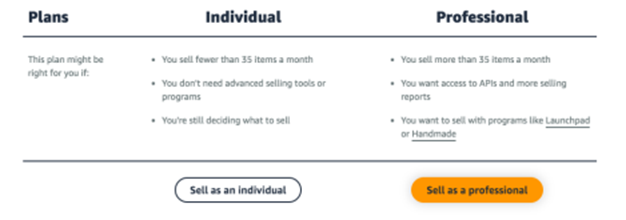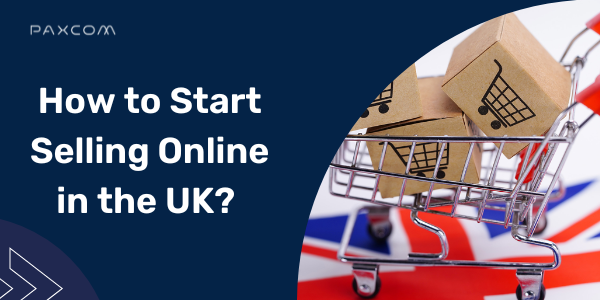As a business owner, sales play a pivotal role in expanding your brand. The transition into digital selling has opened new doors to reach your customers in today’s time and age. Companies can now leverage this virtual space and effectively put their best foot forward to acquire and retain clients for long.
Giving tough competition to the traditional brick-and-mortar system, online selling has swung the gates open for brands to compete in the market. It widens the scope of your business operations, empowering you to reach prospective customers from around the globe.
According to statistics, United Kingdom’s e-commerce revenues reached a valuation of 693 billion GBP in 2019. This is an evident indicator of the expanding nature of the industry, nudging you to hop on the trend before it saturates.
With the current scenarios in mind, the most certain question popping up right now is how to start selling online in the UK. Park your worries because we have got you covered. Let’s dive into the blog and explore!
Table of Contents
Effective Ways To Start Selling Online in the UK Today
Selling products online might appear pretty basic, but there is more to the business. Getting into a marketplace, listing your services and delivering on time is fundamental to an online selling brand. However, setting up the processes rightly tends to be the gamechanger.
Every step is integral to having a happy customer, starting from your product manufacturing to the final order shipment. It is the gradual cycle of satisfied clients making repeat purchases that contributes to enhancing your overall business revenue.
Below-mentioned are some of the most sought-after ways to start your online selling business in the UK without losing out on time.
Know Your Target Market
Kickstart your online selling in the UK by understanding who your target audience is. Where do the prospective buyers live, what are they most passionate about, and
what is their preferred price point— all these can help you better profile your ideal customer.

Once you have this outline in place, you can base all your strategic decisions on the information. This includes drafting customised offers for the visitors and setting up the product context based on geography.
Choosing a Suitable E-commerce Platform
Multiple e-commerce platforms are available in the market, but it is essential to select the one aligned to your needs. Make a checklist for all the non-negotiable aspects you wish to have in your platform, prioritise them and then finalise your marketplace.
Top things to consider while choosing your e-commerce platform:
● Cost of The Platform
● Themes Offered
● Technical Assisatnce
● Payment & Financing Options
● Data Security
● Marketing Tools & Features Amazon UK stands to be the highest-ranked e-commerce website in the country. With its easy-to-use interface and huge web traffic, it can be the perfect place for you to get started. Other alternatives include eBay, Argos and Etsy!
Adept Design & Content
Since you are at the core of a B2C market, your efforts must be planned, keeping the end consumers in mind. This is precisely where compelling designs and content come into place.
Setting up the right content helps establish trust with your prospects and turns them into paying customers, and they get value while you make better revenues. That’s a win-win!
Product Listing & Payment Gateways
Let’s face it- your viewers are going to see the products just as you list them. Make conscious efforts to list your products the right way without confusing your target audience.
Before you start selling online, you must ensure that you opt for the current selling plan based on your needs. Here is what Amazon offers to new merchants!

eBay also makes it easy for sellers to get started on their comprehensive platform. Below is a sneak peek into their portal.
Additionally, make sure to integrate a reliable payment gateway with your platform to offer ease of transaction. Opt for the one that provides detailed purchase views and is cost-effective to use.
Align Your Shipping & Delivery
This is the most crucial step when it comes to your online selling business. You must align a vital shipping and delivery process that gets your customer his desired product in time.
To top it all, always keep a stock of your products to avoid any last-minute shortages. Plan your inventory in advance to pro-actively schedule your shipments.
Quick tip- pay attention to delayed deliveries, complimentary gifts, initial discounts and user-friendly deals. These attract the customers and make them feel special.
Marketing Before ‘The Launch’
Creating hype before the launch of your business generates curiosity and makes people aware of your presence. Make use of SEO and social media to spread the word and establish your online presence. This also adds credibility to your offerings, kickstarting your selling business in no time!
Wrapping Up
Becoming a sought-after online seller might appear daunting, given the already-existing competitors in the domain. However, working on your products and customer services can help you stand out from the crowd.
As it is rightly said, it is the start that is important. All these listed ways are sure to assist you in commencing your online brand efficiently and get the ball rolling!
Found this blog helpful? Stay tuned to the space for more valuable content. Connect with us today and take your first step towards online selling in the UK!















